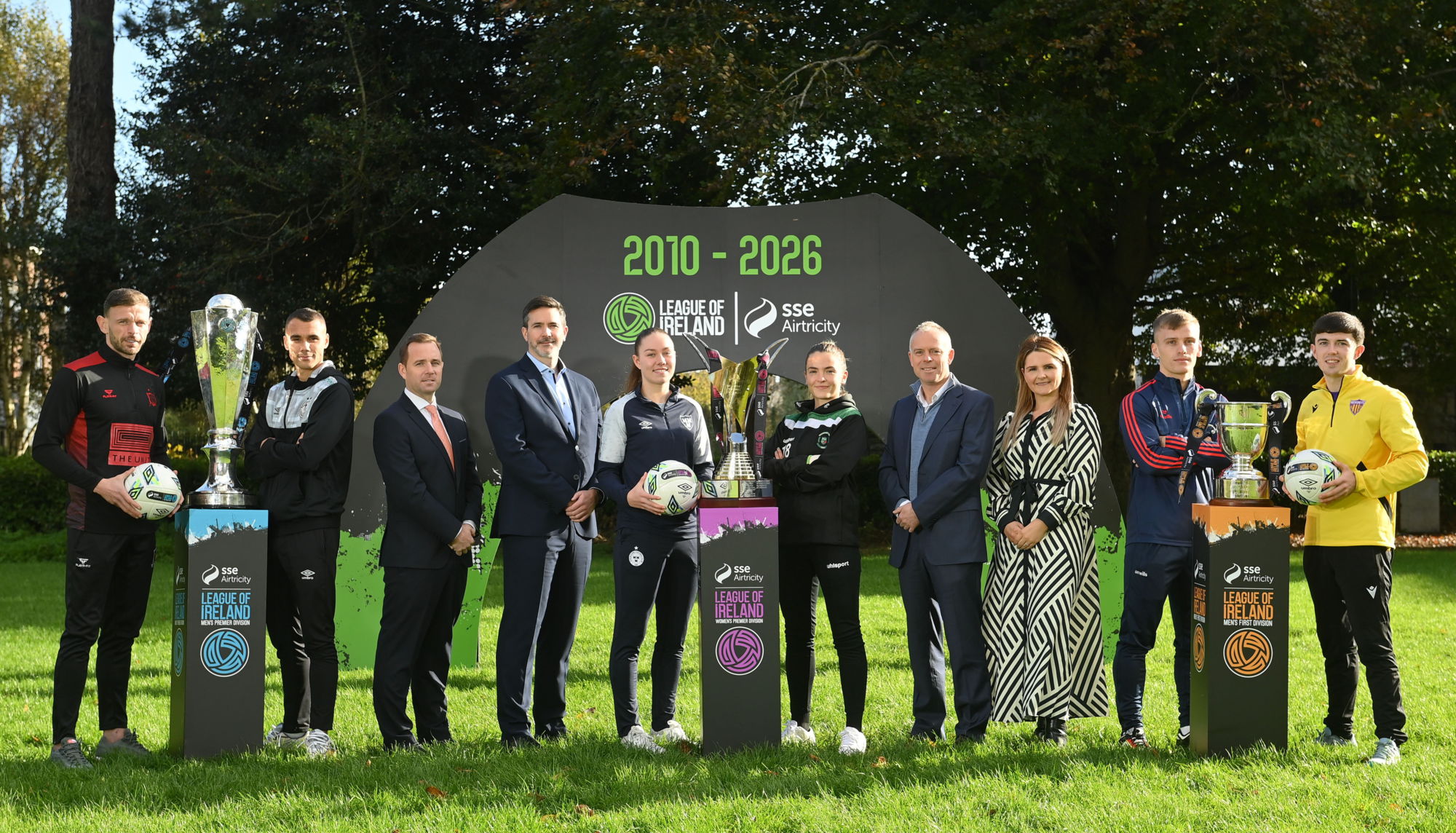In the first edition of a series on League of Ireland players capped by the Republic of Ireland, we focus on Mick Leech. By Macdara Ferris Before Mick Leech ever got two goals for the Republic of Ireland in Brazil, before he scored 132 times in his
In the first edition of a series on League of Ireland players capped by the Republic of Ireland, we focus on Mick Leech.
By Macdara Ferris
Before Mick Leech ever got two goals for the Republic of Ireland in Brazil, before he scored 132 times in his long League of Ireland career or bagged 56 goals across all competitions in the 1968/69 season, and before he ever earned his legendary status at Shamrock Rovers helping the Hoops win half of their FAI Cup six-in-a-row in the 1960s, he was playing with junior side Ormeau.
During that time a month before his 18th birthday he travelled to the 1966 World Cup in England as a spectator. He watched Hungary play Brazil and was blown away by the brilliance of that Hungarian team. Within a year, he would join Rovers and win his first FAI Cup and just three years later he would line out for Ireland against that same Hungarian side.
“I thought Hungary were the best team I’d ever seen playing when I saw them in the ‘66 World Cup against Brazil in Goodison Park,” recalled Mick Leech when reflecting on his own international playing career.
“They were a brilliant team with Bene and others who beat Brazil 3-1 that day and a few years later I was playing against them in Dalymount Park. I thought it was an honour to be on the pitch with them,” said Leech about Ireland’s 2-1 defeat to the Magyars in June 1969.
It was only a month before that Leech had first been included in an Ireland squad. “Outside Easons there was a paper seller with a big poster beside him and it said ‘Leech called into Ireland squad’ so that is the way I heard about it!”
If learning about making his first squad seemed a bit strange, in his debut in that game against Czechoslovakia, Leech ended up with 10 stitches, being locked out of the Dalymount Park dressing room and having to ring his father to get a lift home after the match!
“I was carried off in the first half. The fella would have got six years for the tackle these days, never mind a yellow card! I got taken in the ambulance to the Mater Hospital.
“By the time I got seen to it was late. I had to walk back up the Phibsborough Road in my football gear to Dalymount afterwards. But sure there was nobody there.
“The bar was at least open so I could ring my Da and go ‘look Da, can you come over and collect me?’ There was no way I could get home with all the bandages on!
“In those days for Ireland you just met on a Saturday morning up in Milltown and we would have a kick around. Some of the players were playing club matches in England and would only arrive on Sunday morning when we would all report to the Gresham Hotel for the game.
“You’d have cup of tea and some toast and the manager Charlie Hurley would name the team and say this is the way we are going to play.”
In 1972, Ireland took part in a 20 team ‘mini-World Cup’ called the Brazil Independence Cup. “We were based in Recife and Natal in the north of Brazil and we did quite well.”
In Ireland’s opening game Leech scored his first international goal in the 2-1 win over Iran. They beat Ecuador next 3-2 before losing to Chile 2-1. Leech got his only other international goal from his eight Ireland caps in the final group game against Portugal.
“The winning team went on to play in two groups of four. If we had beaten Portugal, we would have gone on to Rio for the next round. There were eight Benfica players including Eusebio in the team (who were double winners that season).”
Ireland lost 2-1 with Portugal progressing to the next round and then the final in the Maracana against Brazil. They lost 1-0 only conceding a last minute goal from Jairzinho – a player Leech had seen play in the ’66 World Cup six years previously.
Reflecting on what might have been Leech concludes that “half the lads on the team who were playing professionally in England, didn’t want to play for a couple of more weeks and wanted to go home but for me it would have been about going to Rio to play in, what was as far as I was concerned, the home of football.”



